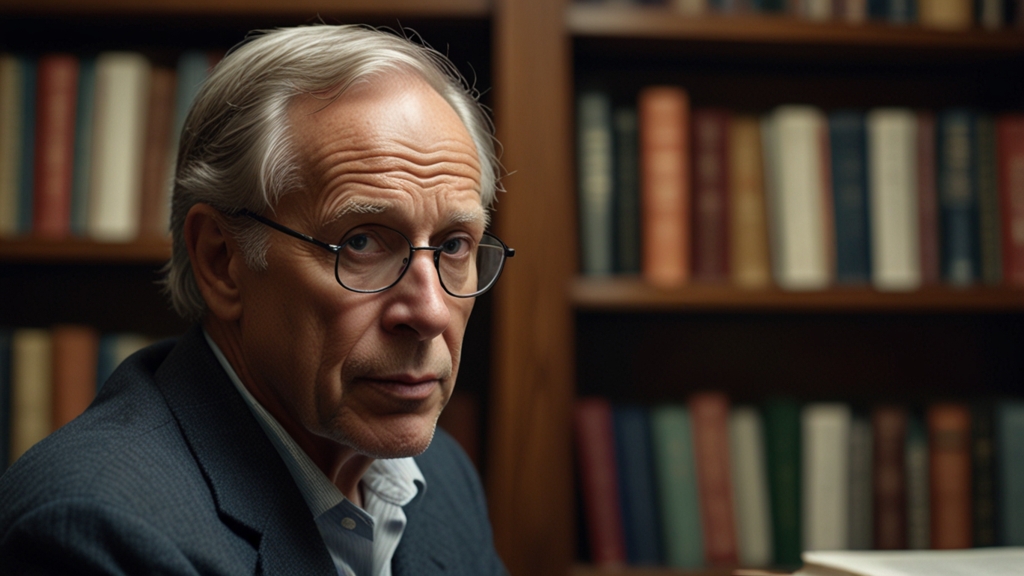Crisis of Knowledge: Are We Losing Our Epistemological Ground?
In an age where information is more accessible than ever, the paradox surges: society faces a profound crisis of knowledge. Communications technology enables the rapid spread of ideas, yet the validity of these ideas often comes into question. Concerns about misinformation, disinformation, and the erosion of authoritative sources foster a critical examination of whether we are losing our epistemological ground.
The Information Overload
The dawn of the internet brought unprecedented access to information. Suddenly, users had encyclopedias, academic journals, news outlets, and forums at their fingertips. This deluge of information was initially seen as a great equalizer, democratizing knowledge acquisition.
However, as the volume of accessible data increased, so did the challenges of discerning credible information from spurious claims. The phenomenon known as "information overload" leads to cognitive fatigue, making it difficult to critically evaluate the veracity of the information.
“The irony of the Information Age is that it has given new respectability to uninformed opinion.” – John Lawton
Misinformation and Disinformation
Misinformation refers to false or inaccurate information spread without malicious intent, often arising from misunderstandings or ignorance. In contrast, disinformation is deliberately misleading or biased information disseminated with the intent to deceive.
Both forms of incorrect information pose significant risks to our epistemological foundations. The rapid shareability and amplification of false claims, exacerbated by algorithms that prioritize engagement over accuracy, disturb the integrity of our collective knowledge base.
“Falsehood flies, and the Truth comes limping after it.” – Jonathan Swift
The Erosion of Authoritative Sources
Traditionally, knowledge was safeguarded by gatekeepers such as academics, scientists, and journalists. These figures adhered to rigorous standards for information verification and dissemination. In the current climate, however, the authority of these traditional figures is increasingly under attack.
The internet has made everyone a potential publisher and expert, blurring the lines between credible sources and armchair pundits. This democratization of content creation, while empowering, also means that authoritative voices often get drowned out in a sea of equally loud, but not equally informed, voices.
The Role of Echo Chambers and Filter Bubbles
Social media platforms often create echo chambers and filter bubbles, where users are exposed predominantly to information that reinforces their existing beliefs. These echo chambers limit critical engagement with diverse perspectives and contribute to the polarization of public discourse.
Inside these bubbles, incorrect or biased information can proliferate unchecked, further eroding the epistemological framework by presenting a skewed version of reality. This scenario poses a serious threat to informed democratic processes and societal cohesion.
Rebuilding Trust in Knowledge
To combat the crisis of knowledge, it is vital to re-establish trust in authoritative sources and foster critical thinking skills among the general public. Media literacy programs can empower individuals to discern credible sources, evaluate evidence, and think critically about the information they encounter.
Institutions must also adapt to the digital age by maintaining transparency in their methodologies and engaging with the public to rebuild trust. Facilitating open but respectful public dialogues and encouraging the consumption of diverse viewpoints can help mitigate the effects of echo chambers.
“Doubt is not a pleasant condition, but certainty is absurd.” – Voltaire
Conclusion
The crisis of knowledge is a multifaceted challenge that necessitates a collective effort to address. While the democratization of information presents unique opportunities, it also requires a heightened awareness of the threats to our epistemological stability. By promoting media literacy, reinforcing the authority of credible sources, and encouraging open dialogue, we can strive to regain and sustain our epistemological ground in an increasingly complex informational landscape.










